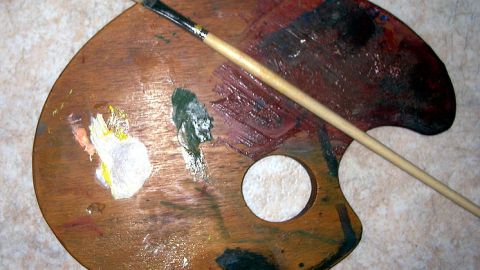A Glorious Waste Of Time

We were in the middle of a conversation around the table at a restaurant when our first year art student made a comment about her classes. “You might be a better artist than you know,” I said. “You’ve just got to put the time in. They say it takes 10,000 hours to become an expert at something.” She looked at me with the kind of skepticism only a teenager could muster, her eyes widening in disbelief.
“It takes 10,000 hours to be an expert at something.”
I couldn’t remember where I’d heard that phrase, or read it, but it had been long enough ago that I’d judged numerous hobbies and avocations by this yardstick for years. “My golf game is only so-so,” I had long reasoned, “because I hadn’t put in enough hours.” On the flip side, I’ve put in more than 10,000 hours putting pen to paper or fingers to keyboard describing people, places and things — some of them real, some of them fictional — and I am nowhere near being an expert writer.
So where did this idea come from?
“The idea that excellence at performing a complex task requires a critical minimum level of practice surfaces again and again in studies of expertise. In fact, researchers have settled on what they believe is the magic number for true expertise: ten thousand hours.”
Malcolm Gladwell, Outliers
I had to stop and think for a minute. In a world full of mixed signals, was my attempt at suggesting to our budding student that she rethink how she looked at how she used her time liable to be misread as a mandate that she had to become an expert?
The good thing about children who grow up in a typical suburban American oasis is the access they have to a good school system and the myriad activities available that are aimed at promoting teamwork, fostering personal development, and providing academic enrichment. It is through the sheer number of activities suburbia’s preteens and teens are often engaged in that many of these kids are introduced to the concept of time. Time, they learn, is not to be wasted.
During my own childhood, time was something that could be wasted gloriously in play. Modern day children, by contrast, seem to have a different view of time that often replicates the preoccupation with time management and productivity their parents are likely to have.
A ceramics professor comes in on the first day of class and divides the students into two sections. He tells one half of the class that their final grade will be based exclusively on the volume of their production; the more they make, the better their grade. The professor tells the other half of the class that they will be graded more traditionally, based solely on the quality of their best piece.
At the end of the semester, the professor discovered that the students who were focused on making as many pots as possible also ended up creating the best pots, much better than the pots made by the students who spent all semester trying to create that one perfect pot.
Bill Buxton, Sketching User Experiences
I don’t know who this Bill Buxton fellow is, but I am immensely impressed with the ceramics professor he has chronicled in the excerpt above from his book. I can only hope that among our art student’s instructors one of them will encourage the same kind of glorious “wasting of time” in practicing her craft.




